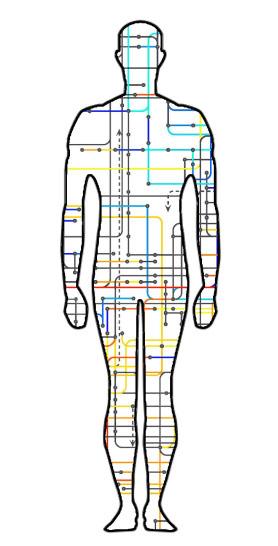
Systems Biology is an approach to study the complexity of biological systems. It is a biology-based interdisciplinary field of study that focuses on complex interactions within biological systems. Computational and mathematical modeling are combined with biological data and data science. Datasets are typically large and contain information on many biological parameters and variables, such as genes, proteins and metabolites.
Depending on the research question or application, different mathematical and computational techniques are used and developed. An important strength is our combination of machine learning with dynamic modelling. Data comes from experimental and clinical studies, executed in close collaboration with clinical research institutes and hospitals.
We reconstruct human metabolism and its multi-level regulation in computer models. Metabolism is studied and modeled at different levels: intracellular pathways, interactions between organs and tissues, and the processes that control metabolism. In particular, we study the interaction of glucose and lipids in energy metabolism of liver, intestine, adipose tissue and skeletal muscle to discover disease mechanisms underlying chronic, cardio-metabolic diseases associated with obesity and an unhealthy lifestyle, such as Metabolic Syndrome and Type 2 Diabetes.
Four themes
1. Dynamic and personalized models of metabolism and its regulation (including ‘digital twinning’, personalized medicine and nutrition).
Example:
Student thesis:
2. Reconstruction and application of genome-scale metabolic network models for multi-omics data integration.
Example:
Student thesis:
3. Clinical data analytics of longitudinal patient data using computational statistics and machine learning for medical decision support.
Example:
Student thesis:
4. Methods and algorithms for biology-based models combined with machine learning.
Example:
Student thesis: